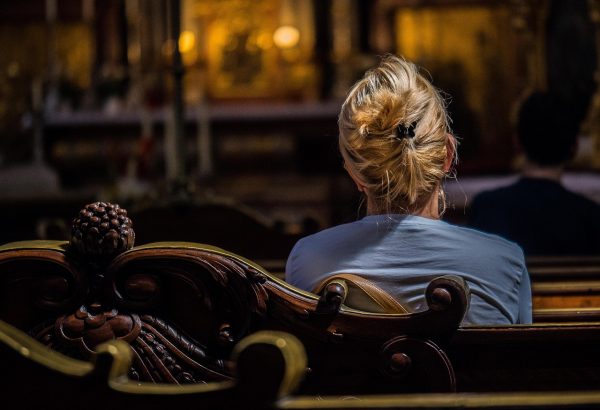
This October, Pope Francis is kicking off a three year synod, assembling leaders and laypeople to discuss issues of church doctrine and practices. One big question on the table: should the Catholic church ordain women women as deacons? Driven in part by a growing movement of women around the world who feel called to ordination, the case for ordaining women will likely be to be one of the most hotly debated issues among Catholics worldwide.
After hundreds of years restricting the role of women in church leadership, how did the Church even get to this point? The story begins with changes in mainstream culture. Historically, changing norms around sex and gender have encouraged church leaders to reexamine their existing doctrines, particularly if church participation is declining. As mainstream culture changes, religious institutions face the challenge of “retraditioning” themselves for the future: adjusting their doctrines and practices to better align with changing mainstream culture. Religious leaders then debate proposed changes to church doctrines and practices–exactly the point that the Catholic Church is at today with the upcoming three-year synod.
- Nancy Ammerman. 2005. Pillars of Faith. University of California Press.
- Stephen Ellingson. 2007. The Megachurch and the Mainline. Chicago, IL: The University of Chicago Press.
- Wade Clark Roof. 1999. Spiritual Marketplace: Baby Boomers and the Remaking of American Religion. Reprint edition. Princeton: Princeton University Press.
- Robert D. Putnam and David E. Campbell. 2012. American Grace: How Religion Divides and Unites Us. New York: Simon & Schuster.
- John Seidler. 1986. “Contested Accommodation: The Catholic Church as a Special Case of Social Change.” Social Forces 64(4):847–74.
What will happen at the end of the synod in 2024? Historical research suggests that after church leaders begin debating ideologies, changes to church policy often come through sheer luck, force, or the influence of powerful personalities. Only time will tell if the church leaders will have responded to the calls of these Catholic women.

Comments